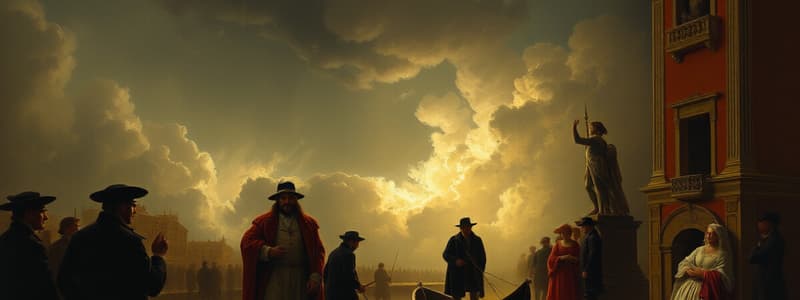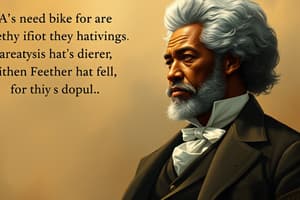Podcast
Questions and Answers
What did Sarrien's paintings represent?
What did Sarrien's paintings represent?
European countries marching towards liberty.
Who was Frederik Sarrien?
Who was Frederik Sarrien?
An artist who presented a series of paintings in 1848.
The French Revolution started in 1789.
The French Revolution started in 1789.
True (A)
Which of the following were steps taken by French revolutionaries to create a feeling of collective identity? (Select all that apply)
Which of the following were steps taken by French revolutionaries to create a feeling of collective identity? (Select all that apply)
Flashcards are hidden until you start studying
Study Notes
Frederik Sarrien
- Artist who showcased a collection of paintings in 1848.
- His artwork depicted a vision of a world characterized by social and democratic republics.
- Visual representation of various European nations advancing towards liberty, signified by the Statue of Liberty.
- Paintings illustrate unity among European countries moving toward enlightenment and freedom.
French Revolution
- Occurred in 1789, marking the beginning of nationalism in Europe.
- Revolutionaries aimed to foster a collective national identity among the populace.
- Key concepts such as "la citoyen" (the citizen) and "la patrie" (the homeland) emerged as foundational ideas.
- Introduction of a new French flag symbolizing national unity.
- Establishment of the National Assembly in 1792, transitioning from the Estates-General to a representative body for the nation.
Studying That Suits You
Use AI to generate personalized quizzes and flashcards to suit your learning preferences.




